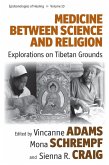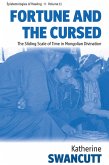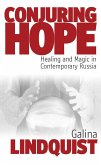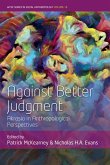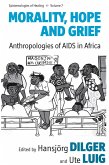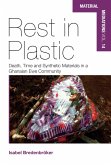Paul Wenzel Geissler, Ruth Jane Prince
The Land Is Dying (eBook, ePUB)
Contingency, Creativity and Conflict in Western Kenya
32,95 €
32,95 €
inkl. MwSt.
Sofort per Download lieferbar

16 °P sammeln
32,95 €
Als Download kaufen

32,95 €
inkl. MwSt.
Sofort per Download lieferbar

16 °P sammeln
Jetzt verschenken
Alle Infos zum eBook verschenken
32,95 €
inkl. MwSt.
Sofort per Download lieferbar
Alle Infos zum eBook verschenken

16 °P sammeln
Paul Wenzel Geissler, Ruth Jane Prince
The Land Is Dying (eBook, ePUB)
Contingency, Creativity and Conflict in Western Kenya
- Format: ePub
- Merkliste
- Auf die Merkliste
- Bewerten Bewerten
- Teilen
- Produkt teilen
- Produkterinnerung
- Produkterinnerung

Bitte loggen Sie sich zunächst in Ihr Kundenkonto ein oder registrieren Sie sich bei
bücher.de, um das eBook-Abo tolino select nutzen zu können.
Hier können Sie sich einloggen
Hier können Sie sich einloggen
Sie sind bereits eingeloggt. Klicken Sie auf 2. tolino select Abo, um fortzufahren.

Bitte loggen Sie sich zunächst in Ihr Kundenkonto ein oder registrieren Sie sich bei bücher.de, um das eBook-Abo tolino select nutzen zu können.
Based on several years of ethnographic fieldwork, the book explores life in and around a Luo-speaking village in western Kenya during a time of death. The epidemic of HIV/AIDS affects every aspect of sociality and pervades villagers' debates about the past, the future and the ethics of everyday life. Central to such debates is a discussion of touch in the broad sense of concrete, material contact between persons. In mundane practices and in ritual acts, touch is considered to be key to the creation of bodily life as well as social continuity. Underlying the significance of material contact is…mehr
- Geräte: eReader
- mit Kopierschutz
- eBook Hilfe
- Größe: 2.08MB
Andere Kunden interessierten sich auch für
![Living Before Dying (eBook, ePUB) Living Before Dying (eBook, ePUB)]() Janette DaviesLiving Before Dying (eBook, ePUB)24,95 €
Janette DaviesLiving Before Dying (eBook, ePUB)24,95 €![Medicine Between Science and Religion (eBook, ePUB) Medicine Between Science and Religion (eBook, ePUB)]() Medicine Between Science and Religion (eBook, ePUB)28,95 €
Medicine Between Science and Religion (eBook, ePUB)28,95 €![Fortune and the Cursed (eBook, ePUB) Fortune and the Cursed (eBook, ePUB)]() Katherine SwancuttFortune and the Cursed (eBook, ePUB)28,95 €
Katherine SwancuttFortune and the Cursed (eBook, ePUB)28,95 €![Conjuring Hope (eBook, ePUB) Conjuring Hope (eBook, ePUB)]() Galina LindquistConjuring Hope (eBook, ePUB)28,95 €
Galina LindquistConjuring Hope (eBook, ePUB)28,95 €![Against Better Judgment (eBook, ePUB) Against Better Judgment (eBook, ePUB)]() Against Better Judgment (eBook, ePUB)26,95 €
Against Better Judgment (eBook, ePUB)26,95 €![Morality, Hope and Grief (eBook, ePUB) Morality, Hope and Grief (eBook, ePUB)]() Morality, Hope and Grief (eBook, ePUB)28,95 €
Morality, Hope and Grief (eBook, ePUB)28,95 €![Rest in Plastic (eBook, ePUB) Rest in Plastic (eBook, ePUB)]() Isabel BredenbrökerRest in Plastic (eBook, ePUB)0,00 €
Isabel BredenbrökerRest in Plastic (eBook, ePUB)0,00 €-
-
-
Based on several years of ethnographic fieldwork, the book explores life in and around a Luo-speaking village in western Kenya during a time of death. The epidemic of HIV/AIDS affects every aspect of sociality and pervades villagers' debates about the past, the future and the ethics of everyday life. Central to such debates is a discussion of touch in the broad sense of concrete, material contact between persons. In mundane practices and in ritual acts, touch is considered to be key to the creation of bodily life as well as social continuity. Underlying the significance of material contact is its connection with growth - of persons and groups, animals, plants and the land - and the forward movement of life more generally. Under the pressure of illness and death, economic hardship and land scarcity, as well as bitter struggles about the relevance and application of Christianity and 'Luo tradition' in daily life, people find it difficult to agree about the role of touch in engendering growth, or indeed about the aims of growth itself.
Dieser Download kann aus rechtlichen Gründen nur mit Rechnungsadresse in A, D ausgeliefert werden.
Produktdetails
- Produktdetails
- Verlag: Berghahn Books
- Seitenzahl: 444
- Erscheinungstermin: 1. Juni 2010
- Englisch
- ISBN-13: 9781845458027
- Artikelnr.: 40173186
- Verlag: Berghahn Books
- Seitenzahl: 444
- Erscheinungstermin: 1. Juni 2010
- Englisch
- ISBN-13: 9781845458027
- Artikelnr.: 40173186
- Herstellerkennzeichnung Die Herstellerinformationen sind derzeit nicht verfügbar.
Paul Wenzel Geissler teaches social anthropology at the University of Oslo and at the London School of Hygiene and Tropical Medicine. He studied medical zoology in Hamburg and Copenhagen (Ph.D. 1998) and social anthropology in Copenhagen and Cambridge (Ph.D. 2003). Since 1993 he has worked in western Kenya, conducting first medical research and then several years of ethnographic fieldwork. Currently he is writing an ethnography of post-colonial scientific research in Kisumu, Kenya.
Table of illustrations
Acknowledgements
Chapter 1. Introduction: "Are we still together here?"
* A community at the end of the world
* The death of today
* Growing relations
* Being together
* Growth
* Touch
* Searching for another social practice
* Engaging boundaries
* Hygiene
* Knowing boundaries
* Changing perspectives?
* Coming together
* Visiting
Chapter 2. Landscapes and histories
* Returns
* A road in time
* Kisumu
* Driving out Bondo District
* The lake
* Piny Luo - 'Luoland'
* A 'tribe'
* Luo sociality
* The reserve
* Return to Uhero Yimbo Muthurwa
* Making Uhero village
* (Re-)Settlement
* Belonging and ownership
* A modern Luo village
* 'Down' into the village
* 'Up' and 'down' KaOkoth
* Alternative 'modernities': the beach and 'Jerusalem'
* KaOgumba
Chapter 3. Salvation and Tradition: heaven and earth?
* Dichotomies in everyday life
* Salvation
* Strong Christians
* Saved life
* Saved and others
* Faith in purity
* Tradition
* The Luo rules
* 'Born-again'
* Traditionalism
* Traditionalism, Christianity and The West
* Customary everyday life
* Searching ways
* Tradition in everyday life
* Everyday ritual
* The absence of ritual
* The omnipresence of ritual
PART ONE
Chapter 4. 'Opening the way': being at home in Uhero
* Introduction
* "Our culture says that one must make a home"
* Relational flows: embedding growth in the home
* Tom's new home
* Moving forward - directions
* Openings and closures
* Order and sequence
* Complementarity and growth: coming together in the house
* Making a house
* Sharing the gendered house
* The living house
* Gender, generation and growth
* Struggling against implication
* The home in heaven
* 'The rules of the home'
* Powers of explication
* Practicing rules
* Cementing relations
* Traditionalism and other kinds of ethnography
5. Growing children: shared persons and permeable bodies
* Introduction
* Sharing
* Sharing or exchange?
* Sharing food
* Food, blood and kinship
* 'The child is of the mother'
* Changed foods and relations
* Sharing and dividing nurture
* Shared bodies
* Illnesses of infancy and their treatment
* Evil eye and spirits
* Medical pluralism?
* Herbal medicines
* Cleanness and dirt
* Sharing names
* Being named after
* Being called
* Sharing names and naming shares
* Conclusion
PART TWO
Chapter 6. Order and decomposition: touch around sickness and death
* Introduction
* Otoyo's home
* The sickness of a daughter
* Return of a daughter
* Kwer and chira
* Continuity and contingency
* Avoiding the rules
* Treating chira
* Caring
* The death of a husband
* Expected death
* "She should remember her love!"
* Death
* The funeral
* The dead body
* Loving people
* Conclusion
Chapter 7. 'Life Seen': touch, vision and speech in the making of sex in
Uhero
* Introduction
* Earthly ethics and Christian morality
* Riwruok
* Riwruok: outside intentionality
* Chira: Growth and directionality
* Chodo and luor: continuity and change
* Cleanness: Sex and separation
* The proliferation of 'Sex'
* AIDS and chira
* The fight against AIDS
* Pornography - 'bad things'
* Conclusion
Chapter 8. "Our Luo culture is sick": identity and infection in the debate
about widow inheritance
* Introduction
* Testing positive
* Becoming a widow
* Contentious practices
* A tough head
* Tero
* Independence
* Alone
* Inheritance and infection
* Past and present tero
* Fighting tero
* Deprivation and property
* Inheriting HIV - fears about women's sexuality and social
reproduction
* Turning tero into a business
* Ambiguous heritage: Tero as source of identity and infection
* 'Our Luo culture is sick'
* 'The most elaborate and solemn ritual': tero is our culture
* Sanitising Luo culture?
* Conclusion
PART THREE
Chapter 9. "How can we drink his tea without killing a bull?" - funerary
ceremony and matters of remembrance
* Introduction
* Funerary ceremonies
* Funerals in Uhero
* Funeral commensality
* Returning to the funeral
* Osure's sawo
* An Earthly feast
* Rebekka
* Eating the sawo
* Traces of the past
* 'Sides'
* Baba Winston's memorial
* A Christian funerary celebration
* Debates
* The service
* Remembrance
* Conclusion
Chapter 10. "The land is dying" - Traces and monuments in the village
landscape
* Introduction
* Cutting the land
* Ownership
* Land, paper and power
* Living on the land
* Gardens and farms
* The bush
* Fences
* At home
* Traces and inscriptions
* Getting one's land - finding one's place
* Conclusion
Chapter 11. Contingency, creativity and difference in western Kenya
* Creative difference
* Old and new dealings with hybridity
* "Are we still together here?"
* Postscript
* Ka-Ogumba 2007
Bibliography
Books and Articles
Newspaper articles and electronic media
Music
Index
Acknowledgements
Chapter 1. Introduction: "Are we still together here?"
* A community at the end of the world
* The death of today
* Growing relations
* Being together
* Growth
* Touch
* Searching for another social practice
* Engaging boundaries
* Hygiene
* Knowing boundaries
* Changing perspectives?
* Coming together
* Visiting
Chapter 2. Landscapes and histories
* Returns
* A road in time
* Kisumu
* Driving out Bondo District
* The lake
* Piny Luo - 'Luoland'
* A 'tribe'
* Luo sociality
* The reserve
* Return to Uhero Yimbo Muthurwa
* Making Uhero village
* (Re-)Settlement
* Belonging and ownership
* A modern Luo village
* 'Down' into the village
* 'Up' and 'down' KaOkoth
* Alternative 'modernities': the beach and 'Jerusalem'
* KaOgumba
Chapter 3. Salvation and Tradition: heaven and earth?
* Dichotomies in everyday life
* Salvation
* Strong Christians
* Saved life
* Saved and others
* Faith in purity
* Tradition
* The Luo rules
* 'Born-again'
* Traditionalism
* Traditionalism, Christianity and The West
* Customary everyday life
* Searching ways
* Tradition in everyday life
* Everyday ritual
* The absence of ritual
* The omnipresence of ritual
PART ONE
Chapter 4. 'Opening the way': being at home in Uhero
* Introduction
* "Our culture says that one must make a home"
* Relational flows: embedding growth in the home
* Tom's new home
* Moving forward - directions
* Openings and closures
* Order and sequence
* Complementarity and growth: coming together in the house
* Making a house
* Sharing the gendered house
* The living house
* Gender, generation and growth
* Struggling against implication
* The home in heaven
* 'The rules of the home'
* Powers of explication
* Practicing rules
* Cementing relations
* Traditionalism and other kinds of ethnography
5. Growing children: shared persons and permeable bodies
* Introduction
* Sharing
* Sharing or exchange?
* Sharing food
* Food, blood and kinship
* 'The child is of the mother'
* Changed foods and relations
* Sharing and dividing nurture
* Shared bodies
* Illnesses of infancy and their treatment
* Evil eye and spirits
* Medical pluralism?
* Herbal medicines
* Cleanness and dirt
* Sharing names
* Being named after
* Being called
* Sharing names and naming shares
* Conclusion
PART TWO
Chapter 6. Order and decomposition: touch around sickness and death
* Introduction
* Otoyo's home
* The sickness of a daughter
* Return of a daughter
* Kwer and chira
* Continuity and contingency
* Avoiding the rules
* Treating chira
* Caring
* The death of a husband
* Expected death
* "She should remember her love!"
* Death
* The funeral
* The dead body
* Loving people
* Conclusion
Chapter 7. 'Life Seen': touch, vision and speech in the making of sex in
Uhero
* Introduction
* Earthly ethics and Christian morality
* Riwruok
* Riwruok: outside intentionality
* Chira: Growth and directionality
* Chodo and luor: continuity and change
* Cleanness: Sex and separation
* The proliferation of 'Sex'
* AIDS and chira
* The fight against AIDS
* Pornography - 'bad things'
* Conclusion
Chapter 8. "Our Luo culture is sick": identity and infection in the debate
about widow inheritance
* Introduction
* Testing positive
* Becoming a widow
* Contentious practices
* A tough head
* Tero
* Independence
* Alone
* Inheritance and infection
* Past and present tero
* Fighting tero
* Deprivation and property
* Inheriting HIV - fears about women's sexuality and social
reproduction
* Turning tero into a business
* Ambiguous heritage: Tero as source of identity and infection
* 'Our Luo culture is sick'
* 'The most elaborate and solemn ritual': tero is our culture
* Sanitising Luo culture?
* Conclusion
PART THREE
Chapter 9. "How can we drink his tea without killing a bull?" - funerary
ceremony and matters of remembrance
* Introduction
* Funerary ceremonies
* Funerals in Uhero
* Funeral commensality
* Returning to the funeral
* Osure's sawo
* An Earthly feast
* Rebekka
* Eating the sawo
* Traces of the past
* 'Sides'
* Baba Winston's memorial
* A Christian funerary celebration
* Debates
* The service
* Remembrance
* Conclusion
Chapter 10. "The land is dying" - Traces and monuments in the village
landscape
* Introduction
* Cutting the land
* Ownership
* Land, paper and power
* Living on the land
* Gardens and farms
* The bush
* Fences
* At home
* Traces and inscriptions
* Getting one's land - finding one's place
* Conclusion
Chapter 11. Contingency, creativity and difference in western Kenya
* Creative difference
* Old and new dealings with hybridity
* "Are we still together here?"
* Postscript
* Ka-Ogumba 2007
Bibliography
Books and Articles
Newspaper articles and electronic media
Music
Index
Table of illustrations
Acknowledgements
Chapter 1. Introduction: "Are we still together here?"
* A community at the end of the world
* The death of today
* Growing relations
* Being together
* Growth
* Touch
* Searching for another social practice
* Engaging boundaries
* Hygiene
* Knowing boundaries
* Changing perspectives?
* Coming together
* Visiting
Chapter 2. Landscapes and histories
* Returns
* A road in time
* Kisumu
* Driving out Bondo District
* The lake
* Piny Luo - 'Luoland'
* A 'tribe'
* Luo sociality
* The reserve
* Return to Uhero Yimbo Muthurwa
* Making Uhero village
* (Re-)Settlement
* Belonging and ownership
* A modern Luo village
* 'Down' into the village
* 'Up' and 'down' KaOkoth
* Alternative 'modernities': the beach and 'Jerusalem'
* KaOgumba
Chapter 3. Salvation and Tradition: heaven and earth?
* Dichotomies in everyday life
* Salvation
* Strong Christians
* Saved life
* Saved and others
* Faith in purity
* Tradition
* The Luo rules
* 'Born-again'
* Traditionalism
* Traditionalism, Christianity and The West
* Customary everyday life
* Searching ways
* Tradition in everyday life
* Everyday ritual
* The absence of ritual
* The omnipresence of ritual
PART ONE
Chapter 4. 'Opening the way': being at home in Uhero
* Introduction
* "Our culture says that one must make a home"
* Relational flows: embedding growth in the home
* Tom's new home
* Moving forward - directions
* Openings and closures
* Order and sequence
* Complementarity and growth: coming together in the house
* Making a house
* Sharing the gendered house
* The living house
* Gender, generation and growth
* Struggling against implication
* The home in heaven
* 'The rules of the home'
* Powers of explication
* Practicing rules
* Cementing relations
* Traditionalism and other kinds of ethnography
5. Growing children: shared persons and permeable bodies
* Introduction
* Sharing
* Sharing or exchange?
* Sharing food
* Food, blood and kinship
* 'The child is of the mother'
* Changed foods and relations
* Sharing and dividing nurture
* Shared bodies
* Illnesses of infancy and their treatment
* Evil eye and spirits
* Medical pluralism?
* Herbal medicines
* Cleanness and dirt
* Sharing names
* Being named after
* Being called
* Sharing names and naming shares
* Conclusion
PART TWO
Chapter 6. Order and decomposition: touch around sickness and death
* Introduction
* Otoyo's home
* The sickness of a daughter
* Return of a daughter
* Kwer and chira
* Continuity and contingency
* Avoiding the rules
* Treating chira
* Caring
* The death of a husband
* Expected death
* "She should remember her love!"
* Death
* The funeral
* The dead body
* Loving people
* Conclusion
Chapter 7. 'Life Seen': touch, vision and speech in the making of sex in
Uhero
* Introduction
* Earthly ethics and Christian morality
* Riwruok
* Riwruok: outside intentionality
* Chira: Growth and directionality
* Chodo and luor: continuity and change
* Cleanness: Sex and separation
* The proliferation of 'Sex'
* AIDS and chira
* The fight against AIDS
* Pornography - 'bad things'
* Conclusion
Chapter 8. "Our Luo culture is sick": identity and infection in the debate
about widow inheritance
* Introduction
* Testing positive
* Becoming a widow
* Contentious practices
* A tough head
* Tero
* Independence
* Alone
* Inheritance and infection
* Past and present tero
* Fighting tero
* Deprivation and property
* Inheriting HIV - fears about women's sexuality and social
reproduction
* Turning tero into a business
* Ambiguous heritage: Tero as source of identity and infection
* 'Our Luo culture is sick'
* 'The most elaborate and solemn ritual': tero is our culture
* Sanitising Luo culture?
* Conclusion
PART THREE
Chapter 9. "How can we drink his tea without killing a bull?" - funerary
ceremony and matters of remembrance
* Introduction
* Funerary ceremonies
* Funerals in Uhero
* Funeral commensality
* Returning to the funeral
* Osure's sawo
* An Earthly feast
* Rebekka
* Eating the sawo
* Traces of the past
* 'Sides'
* Baba Winston's memorial
* A Christian funerary celebration
* Debates
* The service
* Remembrance
* Conclusion
Chapter 10. "The land is dying" - Traces and monuments in the village
landscape
* Introduction
* Cutting the land
* Ownership
* Land, paper and power
* Living on the land
* Gardens and farms
* The bush
* Fences
* At home
* Traces and inscriptions
* Getting one's land - finding one's place
* Conclusion
Chapter 11. Contingency, creativity and difference in western Kenya
* Creative difference
* Old and new dealings with hybridity
* "Are we still together here?"
* Postscript
* Ka-Ogumba 2007
Bibliography
Books and Articles
Newspaper articles and electronic media
Music
Index
Acknowledgements
Chapter 1. Introduction: "Are we still together here?"
* A community at the end of the world
* The death of today
* Growing relations
* Being together
* Growth
* Touch
* Searching for another social practice
* Engaging boundaries
* Hygiene
* Knowing boundaries
* Changing perspectives?
* Coming together
* Visiting
Chapter 2. Landscapes and histories
* Returns
* A road in time
* Kisumu
* Driving out Bondo District
* The lake
* Piny Luo - 'Luoland'
* A 'tribe'
* Luo sociality
* The reserve
* Return to Uhero Yimbo Muthurwa
* Making Uhero village
* (Re-)Settlement
* Belonging and ownership
* A modern Luo village
* 'Down' into the village
* 'Up' and 'down' KaOkoth
* Alternative 'modernities': the beach and 'Jerusalem'
* KaOgumba
Chapter 3. Salvation and Tradition: heaven and earth?
* Dichotomies in everyday life
* Salvation
* Strong Christians
* Saved life
* Saved and others
* Faith in purity
* Tradition
* The Luo rules
* 'Born-again'
* Traditionalism
* Traditionalism, Christianity and The West
* Customary everyday life
* Searching ways
* Tradition in everyday life
* Everyday ritual
* The absence of ritual
* The omnipresence of ritual
PART ONE
Chapter 4. 'Opening the way': being at home in Uhero
* Introduction
* "Our culture says that one must make a home"
* Relational flows: embedding growth in the home
* Tom's new home
* Moving forward - directions
* Openings and closures
* Order and sequence
* Complementarity and growth: coming together in the house
* Making a house
* Sharing the gendered house
* The living house
* Gender, generation and growth
* Struggling against implication
* The home in heaven
* 'The rules of the home'
* Powers of explication
* Practicing rules
* Cementing relations
* Traditionalism and other kinds of ethnography
5. Growing children: shared persons and permeable bodies
* Introduction
* Sharing
* Sharing or exchange?
* Sharing food
* Food, blood and kinship
* 'The child is of the mother'
* Changed foods and relations
* Sharing and dividing nurture
* Shared bodies
* Illnesses of infancy and their treatment
* Evil eye and spirits
* Medical pluralism?
* Herbal medicines
* Cleanness and dirt
* Sharing names
* Being named after
* Being called
* Sharing names and naming shares
* Conclusion
PART TWO
Chapter 6. Order and decomposition: touch around sickness and death
* Introduction
* Otoyo's home
* The sickness of a daughter
* Return of a daughter
* Kwer and chira
* Continuity and contingency
* Avoiding the rules
* Treating chira
* Caring
* The death of a husband
* Expected death
* "She should remember her love!"
* Death
* The funeral
* The dead body
* Loving people
* Conclusion
Chapter 7. 'Life Seen': touch, vision and speech in the making of sex in
Uhero
* Introduction
* Earthly ethics and Christian morality
* Riwruok
* Riwruok: outside intentionality
* Chira: Growth and directionality
* Chodo and luor: continuity and change
* Cleanness: Sex and separation
* The proliferation of 'Sex'
* AIDS and chira
* The fight against AIDS
* Pornography - 'bad things'
* Conclusion
Chapter 8. "Our Luo culture is sick": identity and infection in the debate
about widow inheritance
* Introduction
* Testing positive
* Becoming a widow
* Contentious practices
* A tough head
* Tero
* Independence
* Alone
* Inheritance and infection
* Past and present tero
* Fighting tero
* Deprivation and property
* Inheriting HIV - fears about women's sexuality and social
reproduction
* Turning tero into a business
* Ambiguous heritage: Tero as source of identity and infection
* 'Our Luo culture is sick'
* 'The most elaborate and solemn ritual': tero is our culture
* Sanitising Luo culture?
* Conclusion
PART THREE
Chapter 9. "How can we drink his tea without killing a bull?" - funerary
ceremony and matters of remembrance
* Introduction
* Funerary ceremonies
* Funerals in Uhero
* Funeral commensality
* Returning to the funeral
* Osure's sawo
* An Earthly feast
* Rebekka
* Eating the sawo
* Traces of the past
* 'Sides'
* Baba Winston's memorial
* A Christian funerary celebration
* Debates
* The service
* Remembrance
* Conclusion
Chapter 10. "The land is dying" - Traces and monuments in the village
landscape
* Introduction
* Cutting the land
* Ownership
* Land, paper and power
* Living on the land
* Gardens and farms
* The bush
* Fences
* At home
* Traces and inscriptions
* Getting one's land - finding one's place
* Conclusion
Chapter 11. Contingency, creativity and difference in western Kenya
* Creative difference
* Old and new dealings with hybridity
* "Are we still together here?"
* Postscript
* Ka-Ogumba 2007
Bibliography
Books and Articles
Newspaper articles and electronic media
Music
Index


